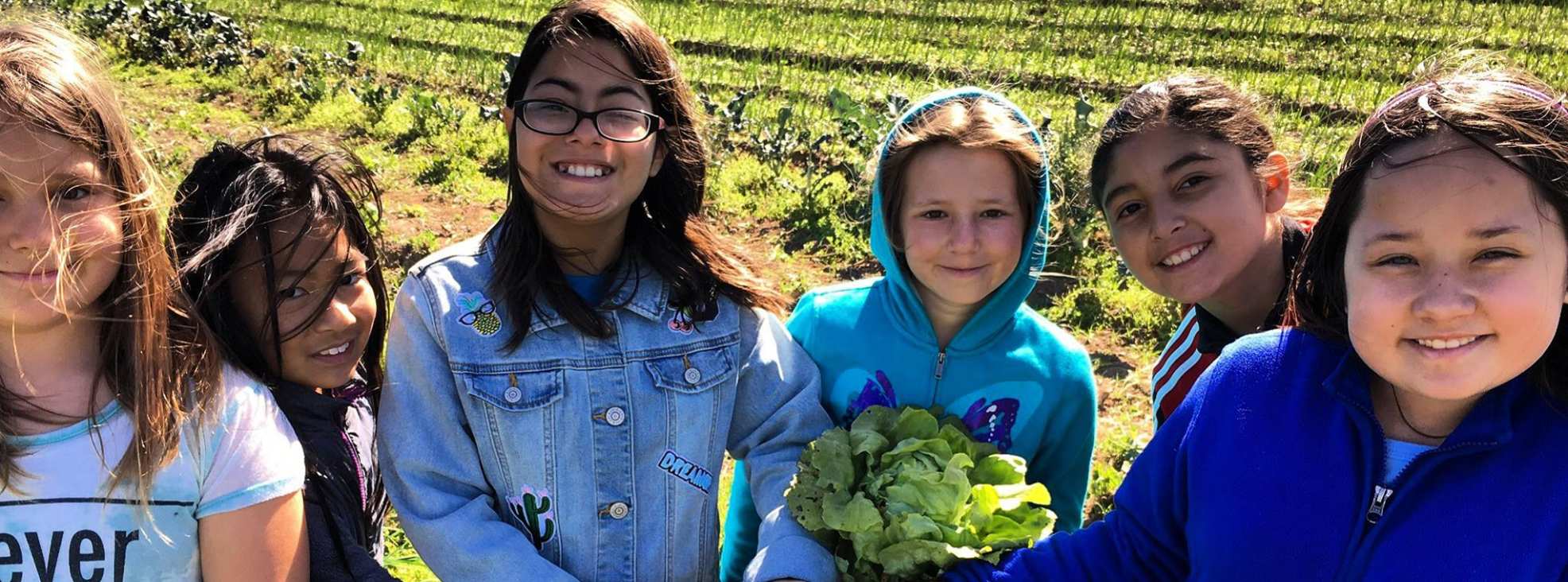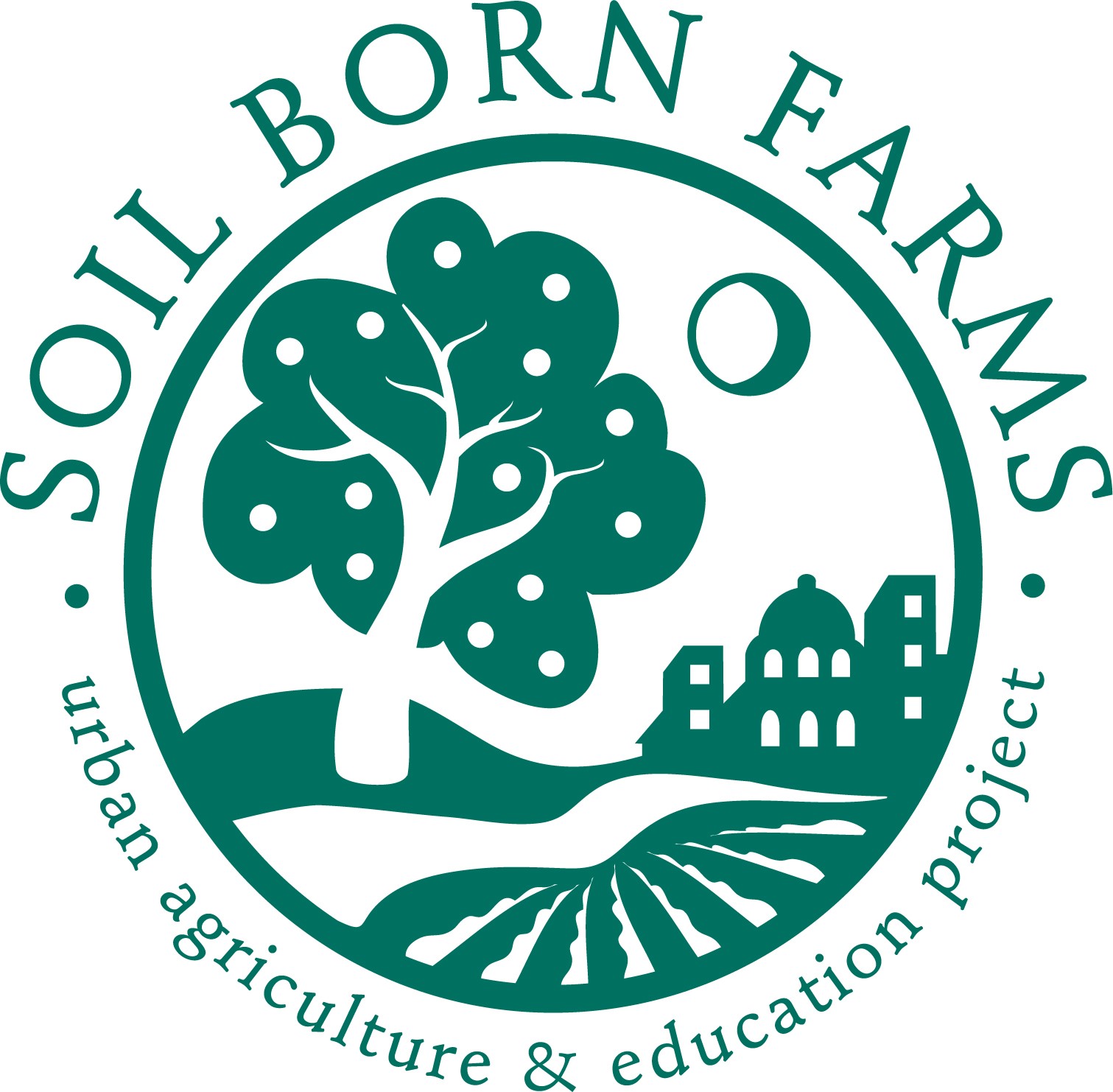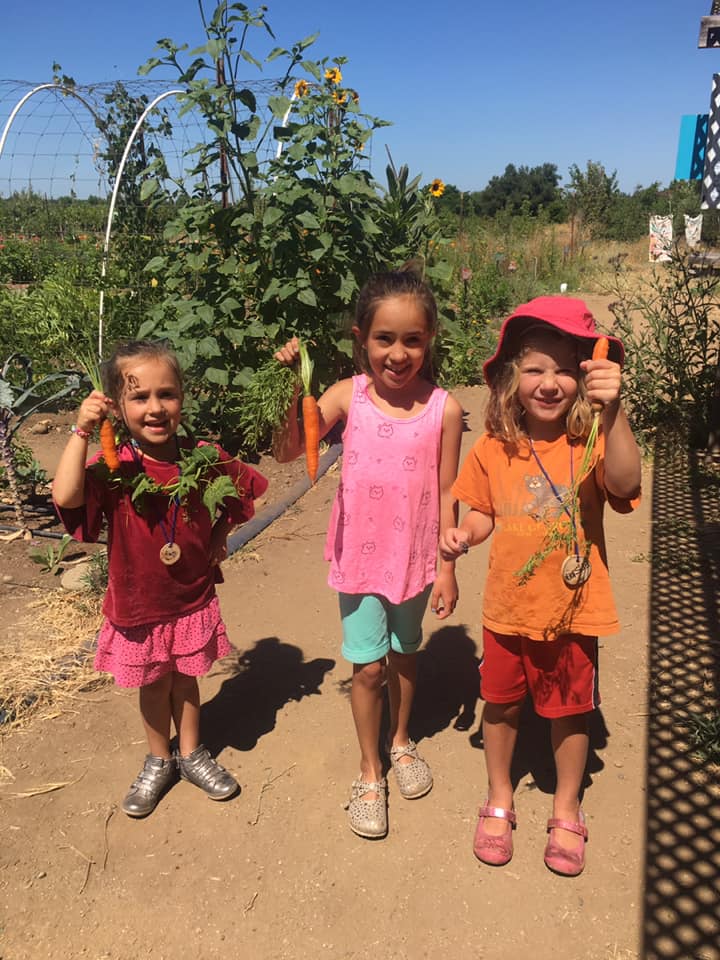
Soil Born Farms
Roots and Wings

About Soil Born Farms
Soil Born Farms is a non-profit urban agriculture and education project whose mission is to empower people to participate in a local food system that encourages health, nurtures the environment and grows a sustainable community. Since 2004 the organization has developed and run interconnected programs focused on skill building for personal, community and environmental health. Their 55-acre organic farm and education center is a permanently protected open space resource located in a dense urban area of Sacramento County. As caretakers of this community treasure, Soil Born Farms is fulfilling the site’s potential as a dynamic center for hands-on learning, youth empowerment, healthy food access, community gathering, culinary exchange, and environmental stewardship. They offer 20,000 visitors per year with experiences on the farm through our learning gardens, fruit orchard, vegetable row crops, on-site farm stand, youth garden, kids play area, learning kitchen, schoolhouse classroom, habitat plantings, 10 acres of restored creek habitat, and outdoor classrooms. Their land is more than just a farm – it is a refuge of open space, a culture of healthy living, and a place where people find connection to the land and each other.
Roots and Wings
With funding from the Kelly Foundation this program supports Soil Born Farms’ “Roots and Wings” on-farm youth education program, through which students pre-K through 12th grade engage in hands-on education about agriculture, nutrition and the environment at our farm headquarters and at school sites. Roots and Wings field trips engage over 750 youth with an understanding of what it takes to bring food from farm to table, helping them gain skills for healthy living and become aware of the connection between our food, our health and the health of the environment. Additionally, it supports staff time for Roots and Wings program delivery, educational supplies used in the program, and scholarships for classrooms from low-income schools that otherwise would not be able to afford field trip fees (normally $15/student). Program fees are vital to sustaining our work, but we are keenly aware of the need to make these experiences accessible to youth of all income levels.

